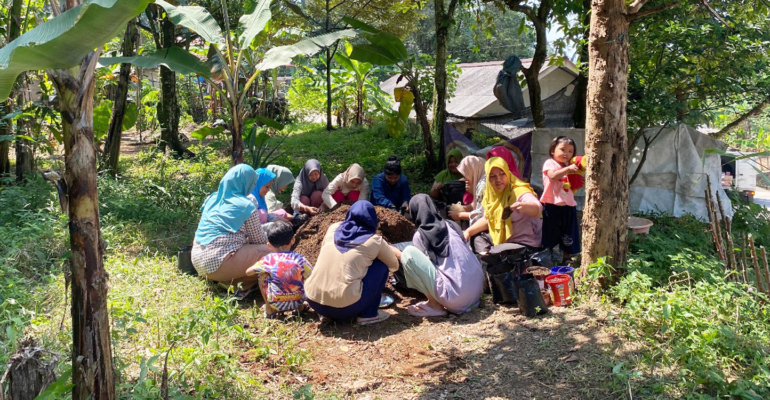PPKO FMSC IPB University Team Empowers Karacak Residents, Manage People’s Forest More Sustainably and Profitably

Indonesia, as one of the countries with the largest tropical forests in the world, faces great challenges in preserving its forests. In recent years, there has been a decline in forest cover in various regions, especially in state forest areas. However, there are also areas that have experienced an increase in forest cover from community-owned land, such as in Karacak Village, Bogor Regency, West Java.
However, community skills in managing community forests are still limited, which can lead to their low economic value and risk the conversion of community forests to non-forest land. In fact, these forests have great benefits for the environment.
Responding to this situation, IPB University students from the Student Organization Capacity Strengthening Program (PPK Ormawa) team from the Forest Management Students’ Club (FMSC) in collaboration with the Karacak Village community agreed to optimize non-timber forest products in agropolitan village-based community forests.
This activity involves the application of occupational safety and health (K3) in fruit harvesting, standardization of fruit quality, domestication of Cengal durian, as well as digital marketing training, and processing of derivative products. These efforts are expected to improve the skills of local communities, so that they are able to manage community forests more effectively and sustainably.
“We are concerned about the declining forest cover in Indonesia. But seeing the potential in Karacak Village, we believe this optimization effort will bring great benefits, both for the environment and the local economy,” said Zildjan Nasrullah, a representative of the PPK Ormawa FMSC IPB University team.
He said, this assistance aims to improve community welfare through optimal utilization of forest products, while ensuring the preservation of this valuable community forest.
“With strong collaboration between the community and academics, it is hoped that this community-based forest management model can be adopted in other regions in Indonesia to face the challenges of deforestation and forest degradation,” he continued.
According to Zildjan, the efforts made by the PPK Ormawa FMSC IPB University team to involve local communities and provide guidance on sustainable forest management practices have the potential to increase the resilience and long-term survival of forest-owning communities.
“Through proper community forest management, the Karacak Village community is expected to not only be able to preserve the environment, but also increase the economic value of their forest products. That way, community forests can function optimally as a sustainable resource, which supports community welfare and reduces the risk of land conversion,” he concluded. (*/Rz) (IAAS/SNI)



